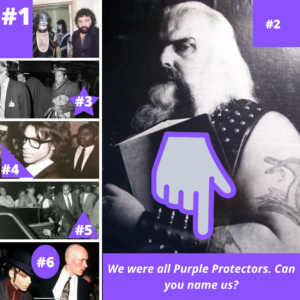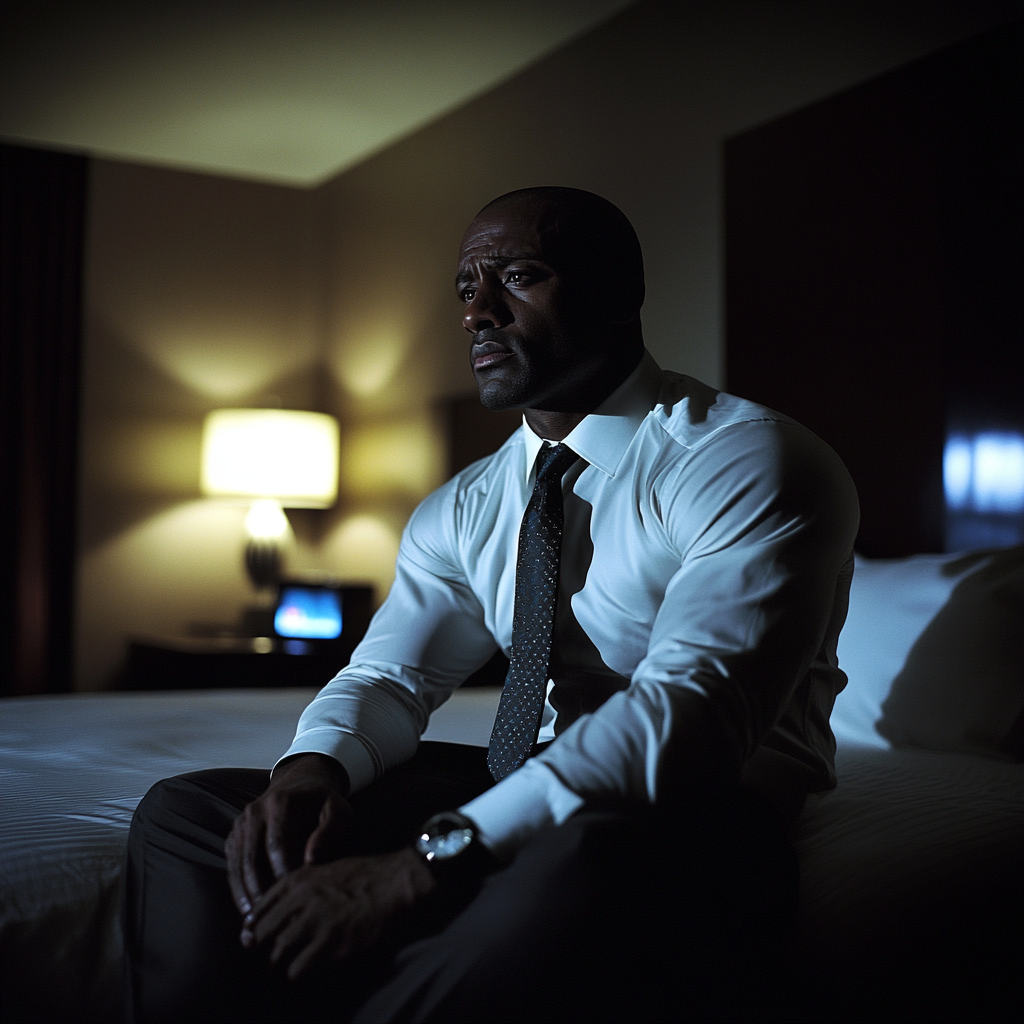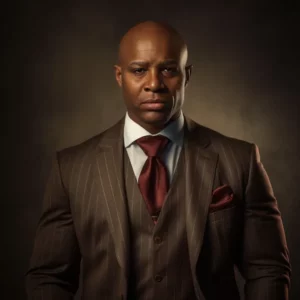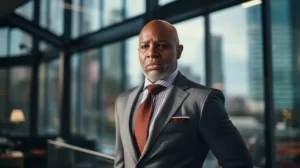Add your feed to SetSticker.com! Promote your sites and attract more customers. It costs only 100 EUROS per YEAR.
Pleasant surprises on every page! Discover new articles, displayed randomly throughout the site. Interesting content, always a click away
Bodyguard Careers
Bodyguard Careers is an informational site with the purpose of providing bodyguards with all the information and tools necessary to succeed in the executive protection industry.My First Executive Protection Assignment: Lessons from the Summer of ’84 2 Sep 2024, 4:01 pm
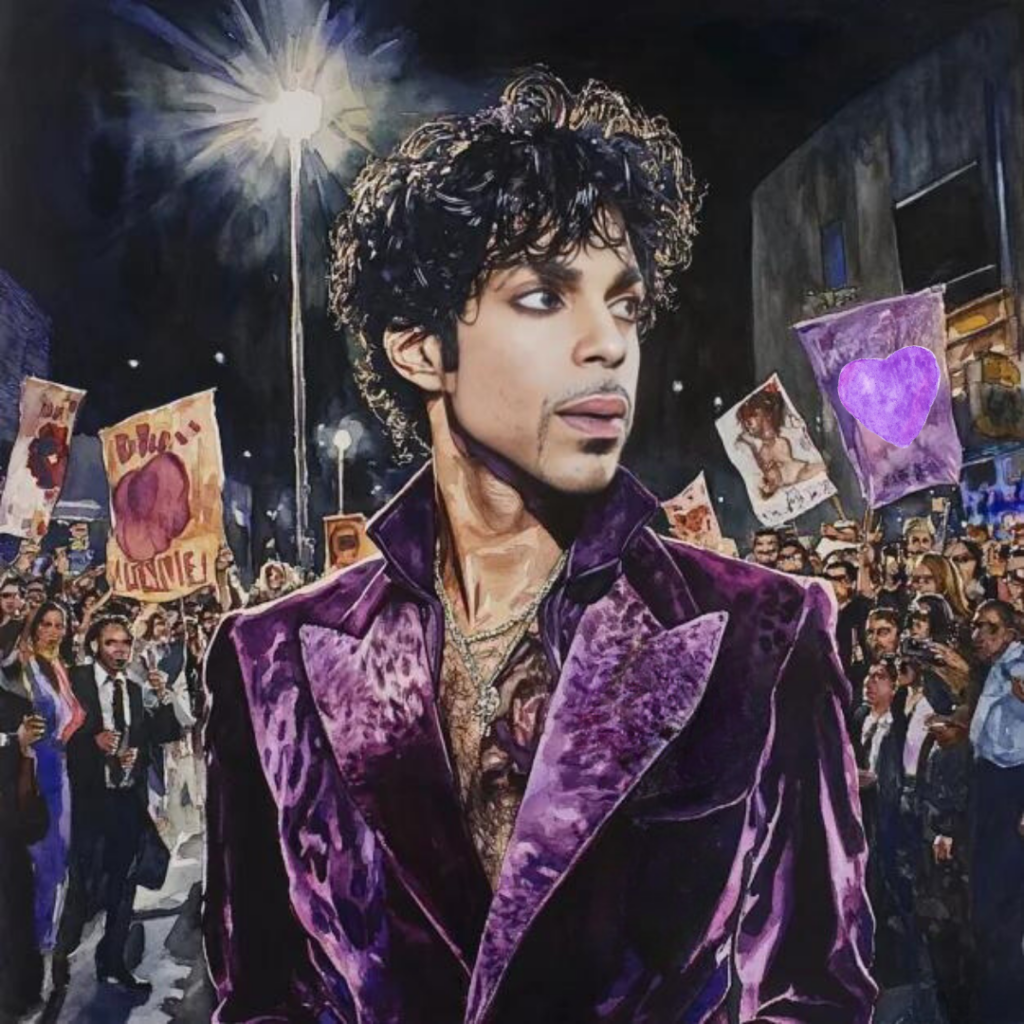
The summer of 1984 marked my entry into the world of executive protection, as well as my first executive protection assignment. Fresh-faced and eager, I was tasked with accompanying Prince to Los Angeles. Looking back, I realize how woefully unprepared I was for this assignment. If it weren’t for the guidance of an exceptional security driver named Murray Levy, my first detail would have been an unmitigated disaster.
My boss, affectionately known as “Big Chick,” had faith in my abilities to handle the detail in his absence. However, the truth was that I was nowhere near ready for the responsibilities that awaited me in Los Angeles. The glitz and glamour of protecting a music icon were quickly overshadowed by the realities of the job.
I felt out of my depth from the moment we touched down in LA. The bustling airport, the crowds of fans, and the complex logistics of moving a high-profile client through the city were all new to me. I found myself constantly looking to Murray for guidance, often with a mix of panic and gratitude in my eyes.
Murray, a veteran in the field, seemed to anticipate every challenge before it arose. He navigated the crowded streets of Los Angeles with ease, always keeping one eye on the road and the other on potential security threats. His calm demeanor in high-pressure situations was a stark contrast to my nervous energy.
One particular incident stands out in my memory. We were arriving at the Westwood Marquis Hotel, and as Murray pulled up to the entrance, he turned to me and asked if I had contacted the hotel’s security director. I stared back at him like a deer in headlights, realizing I had completely overlooked this crucial step.
 Without missing a beat, Murray reached for the car phone – a rarity at the time – and called the hotel himself. He spoke with the security director, explaining that Prince would be arriving shortly and requesting accommodations for his security team to meet us underground. He also mentioned that I, as Prince’s security, would need to sweep the suite before Prince entered.
Without missing a beat, Murray reached for the car phone – a rarity at the time – and called the hotel himself. He spoke with the security director, explaining that Prince would be arriving shortly and requesting accommodations for his security team to meet us underground. He also mentioned that I, as Prince’s security, would need to sweep the suite before Prince entered.
Murray then informed me that when we got to the hotel, he’d have Prince stay in the vehicle with him while I went upstairs to inspect the suite.
I was completely out of my depth, but Murray’s professionalism and patience with me, a true greenhorn who had no clue what I was doing, was remarkable. It was a masterclass in advance work and client protection.
Throughout this executive protection assignment, Murray took me under his wing. He patiently explained the intricacies of route planning, the importance of maintaining a low profile, and the art of blending into different environments. His wealth of knowledge was invaluable, and I found myself constantly asking questions, eager to absorb every bit of information I could about the nuances of executive protection.
One of the most important lessons I learned from Murray was the value of preparation. He taught me to always have multiple contingency plans, to know the layout of every venue before we arrived, and to anticipate potential security risks.
This level of preparedness became the foundation of my approach to executive protection for years to come.
Another crucial lesson was the importance of discretion. Murray emphasized that our job was not just to protect but also to ensure our client’s privacy and comfort. He showed me how to be present without being intrusive, a skill that took time to master but proved invaluable throughout my career.
As the executive protection assignment progressed, I began to find my footing. With Murray’s guidance, I learned to read situations more effectively, communicate efficiently with the rest of the Prince’s entourage, and make quick decisions under pressure. By the end of the detail, I had gained a newfound confidence in my abilities.
Looking back on that summer in Los Angeles, I realize how fortunate I was to have had Murray as a mentor. His patience, expertise, and willingness to share his knowledge shaped my entire career in executive protection. The lessons I learned from him – to always be prepared, to stay calm under pressure, to be discreet, and to never stop learning – have stayed with me throughout my professional journey.
My first executive protection assignment taught me the value of humility in this field. It showed me that no matter how confident you might feel, there’s always more to learn. I discovered that being a “sponge” – absorbing knowledge from more experienced colleagues – was not a sign of weakness, but a crucial part of professional growth.
In the years since that summer of ’84, I’ve had the privilege of working on countless high-profile assignments. Each one has brought its own unique challenges and learning opportunities.
But none have had quite the same impact as that first detail with Prince and Murray in Los Angeles.
To those just starting in the field of executive protection, my advice is this: don’t be afraid to ask questions. Seek out mentors who are willing to share their knowledge. Be humble, be observant, and always be ready to learn.
Remember, even the most seasoned professionals were once beginners. It’s not about how much you know when you start; it’s about how much you’re willing to learn along the way.
That summer in Los Angeles may have been my first assignment, but it laid the groundwork for everything that followed. It taught me that in executive protection, success is not just about physical skills or tactical knowledge. It’s about adaptability, discretion, preparedness, and above all, a willingness to learn from those around you.
Are you looking to propel your protection career to new heights? Discover a wealth of resources designed to guide you through the complexities of the EP industry.
Whether you want to enhance your skills, stay ahead of the latest trends, or find innovative solutions to security challenges, we’ve got you covered. Click on the links below to explore and unlock the potential for your professional growth today.
Harlan Austin
Executive Protection Books
Professional Services
The post My First Executive Protection Assignment: Lessons from the Summer of ’84 appeared first on Bodyguard Careers.
Protecting a Prince: The Unsung Heroes Behind the Purple Curtain 31 Aug 2024, 4:03 pm

When we think of Prince, we often picture the musical genius on stage, captivating audiences with his unparalleled talent.
But behind every great artist stands a team of dedicated professionals working tirelessly to ensure their safety and success.
For Prince, this meant a select brotherhood of bodyguards who protected him throughout his career.
These men worked in the shadows, rarely receiving public recognition for their crucial role in Prince’s life and career.
As a former member of this elite group (Prince’s fourth bodyguard), I want to shed light on these unsung heroes who played a major part in Prince’s success.
Contrary to popular belief, Charles “Big Chick” Huntsberry was not Prince’s first bodyguard.
That honor belongs to Ross “Rosie” Licata, who protected the young artist in the early days of his career. Big Chick, my mentor, would later join the team and become one of Prince’s most recognizable protectors.
Over the years, Prince employed over 20 bodyguards, each bringing their own unique skills and personalities to the job.
From Wally Safford and Gilbert Davison to Aaron Liepins and C.G. Chilton, these men formed a tight-knit group dedicated to keeping Prince safe while allowing him the freedom to create and perform.
Interestingly, Prince’s security team was a diverse group in terms of experience.
Some, like myself, came to the job with no prior protection experience, learning on the job and growing into the role.
Others were seasoned protection veterans or came from law enforcement backgrounds.
This mix of perspectives and skills created a well-rounded team capable of handling any situation.
The job of protecting Prince was not just about physical security. It required a deep understanding of the artist’s needs, habits, and creative process. We had to be invisible when necessary, yet always alert and ready to act.
Our duties ranged from crowd control at concerts to managing overzealous fans and ensuring Prince’s privacy in his most vulnerable moments.
We also had to deal with more serious threats, including death threats from religious zealots who opposed Prince’s provocative image and lyrics.
Some notable bodyguards who served Prince include:
- Gilbert Davison, who later became Prince’s manager and president of Paisley Park
- Duane Nelson, Prince’s half-brother, who protected him for many years.
- Kirk Johnson, a longtime friend who also served as Prince’s drummer and estate manager.
These men, along with many others, formed a protective circle around Prince that allowed him to focus on his art without worrying about his safety or privacy.
They were more than just employees; they were confidants, friends, and in some cases, family.
The life of a bodyguard for a superstar like Prince was not easy. It meant long hours, constant travel, and being away from our own families.
But it also provided us with a front-row seat to musical history and the opportunity to work with one of the greatest artists of our time.
As we remember Prince’s legacy, let’s also take a moment to appreciate the men who worked tirelessly behind the scenes to make his career possible.
Prince’s bodyguards were an essential part of his success story from the early days with Rosie Licata to the final years with Kirk Johnson.
To my fellow bodyguards who served Prince over the years: your dedication, professionalism, and sacrifice did not go unnoticed. You may not have stood in the spotlight, but your contributions to Prince’s life and career were immeasurable. This article is dedicated to you, the unsung heroes who protected a Prince.
Here’s the full list of Prince’s protectors over the years:
1. Ross (Rosie) Licata
2. Charles (Big Chick) Huntsberry
3. Wally Safford
4. Harlan (Hucky) Austin
5. Gilbert Davison
6. William (Bill) Snouffer
7. Duane Nelson
8. Derrick Henry
9. Joey Guzman
10. Donald Cartwright
11. Tracy Jacobs
12. C.G. Chilton
13. Aaron Freeman
14. Aaron Liepins
15. Andre Augustine
16. Earl Gabbidon
17. Trevor Allen
18. Raul Sandoval
19. Zachery (Scott) March
20. Nasser Mercalfe
21. Chris (Romeo) Gaither
22. Julius Yancey
23. Kirk Johnson
These individuals played a unique role in protecting and supporting Prince throughout his legendary career. Those who knew Prince best will always remember their dedication and service.
Are you looking to propel your protection career to new heights? Discover a wealth of resources designed to guide you through the complexities of the EP industry.
Whether you want to enhance your skills, stay ahead of the latest trends, or find innovative solutions to security challenges, we’ve got you covered. Click on the links below to explore and unlock the potential for your professional growth today.
Harlan Austin
Executive Protection Books
Professional Services
The post Protecting a Prince: The Unsung Heroes Behind the Purple Curtain appeared first on Bodyguard Careers.
Why Choosing a Career in Executive Protection Might Not Be Ideal 30 Aug 2024, 8:16 pm
Choosing to work in executive protection can pose challenges and demands that may not be a good fit for everyone’s career path. Here are a few factors that could make it seem like a less-than-ideal choice for some people:
- High Stress and Pressure: The nature of the job requires constant vigilance and the ability to manage high-stress situations. Protectors are responsible for the safety of high-profile clients, and any mistake can have severe consequences. The pressure to perform flawlessly at all times can be overwhelming.
- Long and Unpredictable Hours: Executive protection often involves irregular and extended hours. You may be on call 24/7, and the job often includes nights, weekends, and holidays. The unpredictability of the client’s schedule can make it difficult to maintain a work-life balance.
- Physical and Mental Demands: The role can be physically exhausting, requiring long hours of standing, walking, or even engaging in physically demanding protective tasks. Additionally, the mental toll of constant vigilance and risk assessment can lead to burnout.
- Risk of Danger: Although the primary goal is to avoid confrontations, the reality is that working in executive protection can involve dangerous situations, especially when dealing with high-risk clients or volatile environments. The potential for physical harm is always present.
- Isolation and Loneliness: The job can be isolating. Protectors often spend significant time away from home, working in unfamiliar environments, and may have limited social interactions outside of the professional setting. This can lead to feelings of loneliness and disconnect.
- Lack of Recognition: Despite the critical nature of the work, executive protection professionals often work in the background, with their efforts going unnoticed unless something goes wrong. The lack of recognition can be demotivating for some individuals.
- High Personal Sacrifice: The demands of the job can lead to personal sacrifices, including strained relationships and missed family events. The dedication required for the job can sometimes come at the expense of personal happiness and well-being.
Executive protection is seen as crucial and esteemed; however the obstacles it presents can turn it into a demanding and potentially unappealing career choice for some individuals. Those contemplating entering this profession must thoroughly evaluate these challenges in light of their abilities, lifestyle choices and professional aspirations.
In my experience working in protection may have its challenges but it’s a truly fulfilling and rewarding career path that I’ve found enriching and satisfying personally.
Ensuring the safety of others while improving your skills and encountering scenarios provides a deep sense of gratification for those suited to this profession. Building relationships with coworkers and clients as well as finding purpose in your work are just some of the aspects that make this line of work so special and unique.
Executive protection may not be suitable for everyone; however if you possess the attitude and commitment along with the necessary skills and dedication required for this field of work then you could find it to be a rewarding career choice! Personally speaking from experience; I have found that the benefits of this profession far surpass the challenges it presents; hence making it a viable career option to ponder upon.
Perhaps you will discover, as I have, that the rewards far outweigh the difficulties, making it a career path worth considering.
Are you looking to propel your protection career to new heights? Discover a wealth of resources designed to guide you through the complexities of the EP industry.
Whether you want to enhance your skills, stay ahead of the latest trends, or find innovative solutions to security challenges, we’ve got you covered. Click on the links below to explore and unlock the potential for your professional growth today.
Harlan Austin
Executive Protection Books
Professional Services
The post Why Choosing a Career in Executive Protection Might Not Be Ideal appeared first on Bodyguard Careers.
Executive Protection Training Near Me: Finding the Right School 16 Aug 2024, 7:10 pm

Are you looking to start a career in executive protection or enhance your existing skills? One of the first steps is finding quality training. Using Google to search for “executive protection training near me” can be a great starting point, but there are some important factors to consider in your search.
Gone are the days of flipping through thick Yellow Pages, squinting at the tiny print, and hoping to find a reputable executive protection school sandwiched between “Executors” and “Exercise Equipment.” Remember those frustrating times?
You’d excitedly spot an ad for “Bob’s Bodyguard Academy,” only to realize it’s three states away, and their idea of “executive protection” is teaching you how to flex menacingly in a suit.
Thankfully, we now have the power of the internet at our fingertips. But even with this modern convenience, finding the right executive protection training requires more than just a quick Google search. Let’s explore how to navigate the digital landscape to find the perfect program for your needs
Using Google to Find Local EP Schools
When you type “executive protection training near me” into Google, you’ll likely see a mix of sponsored ads and organic search results. Be aware that the sponsored ads at the top may not be for schools in your local area, despite the “near me” search term. Focus on the organic listings below the ads for more relevant local options.
As you browse the results, look for schools that are logistically convenient for you to attend. Consider factors like:
- Driving distance from your home or work
- Length of courses and schedule (full-time vs. part-time options)
- Parking and public transit accessibility
Doing Your Due Diligence
Once you’ve identified some potential local training options, it’s crucial to thoroughly research each school before enrolling. Unfortunately, there are some programs out there that are more focused on taking your money than providing quality education.
Here are some tips for vetting executive protection schools:
- Check for proper licensing and accreditation
- Read reviews from past students
- Research the instructors’ backgrounds and experience
-
Ask about job placement rates for graduates
- Compare curriculum and hands-on training hours
-
Inquire about included certifications
Consider Top Recommended Schools
While finding a conveniently located school is ideal, don’t limit yourself only to local options. Some of the most highly regarded executive protection training programs may require travel but can be well worth it for the quality of education. A few top recommended schools to consider include:
- Executive Security International (ESI)
- Select-International Training Institute
- Executive Protection Institute (EPI)
- ICON Global Strategic Solutions
- LaSorsa & Associates
- R.L. Oatman & Associates
These established programs have strong reputations in the industry and offer comprehensive curriculums taught by experienced professionals.
Choosing the Right Program for You
Ultimately, the best executive protection training for you will depend on your specific goals, background, and circumstances. Consider factors like:
- Your current skill level and experience
- Career objectives (corporate security, celebrity protection, etc.)
- Budget and ability to travel for training
- Preferred learning style (classroom vs. hands-on)
- Networking opportunities
By taking the time to thoroughly research your options, whether local or further afield, you can find an executive protection program that will set you up for success in this challenging and rewarding field. The right training is an investment in your future career, so choose wisely.
About the Author:
Harlan “Hucky” Austin is a veteran executive protection specialist with over 25 years of experience in the field. He has protected high-profile clients including celebrities, corporate executives, and political figures. Harlan’s expertise spans from traditional close protection techniques to modern digital security strategies.
As the founder of Bodyguard Careers, he’s dedicated to educating and mentoring the next generation of protection professionals. Harlan’s unique blend of real-world experience and continuous learning in the evolving landscape of personal security makes him a sought-after expert in the field.
For more information on personal security or professional executive protection services, contact Harlan Austin at https://www.bodyguardcareers.com/contact-bodyguard-careers/
The post Executive Protection Training Near Me: Finding the Right School appeared first on Bodyguard Careers.
Executive Protection Myths Debunked: What Hollywood Gets Wrong 8 Aug 2024, 2:23 pm

I remember years ago having conversations with colleagues about which movies portray what it’s like to be a protection specialist. Surprisingly, the movie that came up most often was “Guarding Tess,” which at the time I hadn’t seen.
It was interesting because I always thought of that movie as being more on the comedic side. But its portrayal of the day-to-day reality of executive protection resonated with many in our field.
The truth is, what Hollywood portrays and what the job entails is very different. There’s a saying in our industry: “It’s 99% boredom, 1% sheer unmitigated terror. We’re always preparing for that 1%.” Despite what the movies suggest, we’re not running around with our hair on fire 24/7.
Let’s debunk some common Hollywood myths about executive protection:
- Non-stop action: Hollywood version: Every day is filled with car chases, shootouts, and hand-to-hand combat. Reality: Most days involve careful planning, observation, and a lot of waiting. We spend more time preventing incidents than reacting to them.
- Lone wolf operators: Hollywood version: One highly skilled agent single-handedly protects the client. Reality: Executive protection is a team effort. We work in coordinated teams, each with specific roles and responsibilities.
- Flashy and noticeable: Hollywood version: Agents wear dark suits, sunglasses, and earpieces, standing out in every situation. Reality: We often dress to blend in, adapting our appearance to our client’s environment. The goal is to be invisible until needed.
- Constant danger: Hollywood version: Every outing is a potential life-or-death situation. Reality: While we’re always alert, most of our work involves routine tasks and careful risk management.
- Unlimited resources: Hollywood version: Agents have access to high-tech gadgets, unlimited budgets, and government-level intelligence. Reality: We work within budgets, use practical tools, and rely more on careful planning and human intelligence than fancy gadgets.
- Personal relationships with clients: Hollywood version: Agents often become romantically involved with their clients. Reality: Professionalism is key. We maintain a respectful distance to ensure clear judgment and effective protection.
- Solving crimes: Hollywood version: Protection agents often double as detectives, solving complex crimes. Reality: Our primary focus is prevention and protection. We leave crime-solving to law enforcement.
While movies about executive protection can be entertaining, they often miss the mark on the realities of our profession. The true art of protection lies in meticulous planning, keen observation, and the ability to anticipate and prevent threats before they materialize.
It’s not as glamorous as Hollywood makes it out to be, but for those of us dedicated to keeping others safe, it’s incredibly rewarding work.
So next time you’re watching a movie featuring bodyguards or protection specialists, remember – while it might make for great entertainment, it’s far from an accurate portrayal of our day-to-day work. The real skill in executive protection is making sure nothing happens at all.
About the Author:
Harlan “Hucky” Austin is a veteran executive protection specialist with over 25 years of experience in the field. He has protected high-profile clients including celebrities, corporate executives, and political figures. Harlan’s expertise spans from traditional close protection techniques to modern digital security strategies. As the founder of Bodyguard Careers, he’s dedicated to educating and mentoring the next generation of protection professionals. Harlan’s unique blend of real-world experience and continuous learning in the evolving landscape of personal security makes him a sought-after expert in the field.
For more information on personal security or professional executive protection services, contact Harlan Austin at https://www.bodyguardcareers.com/contact-bodyguard-careers/
The post Executive Protection Myths Debunked: What Hollywood Gets Wrong appeared first on Bodyguard Careers.
Executive Protection Training: The Path to Becoming a Highly Skilled Protector 6 Aug 2024, 10:58 pm

Executive protection is a demanding field that requires dedication, skill, and constant vigilance. In today’s world, where high-profile individuals face ever-evolving threats, the need for skilled protection agents continues to grow. Understanding what it takes to excel in this profession is crucial for anyone considering this career path or looking to enhance their existing skills.
This guide will walk you through the key aspects of executive protection training, from essential skills to career opportunities. We’ll explore the complex world of VIP security, where quick thinking and adaptability are just as important as physical strength and combat skills.
The essence of executive protection training goes far beyond basic security measures. At its core, it aims to create professionals who can safeguard VIPs from a wide range of threats in any environment. Unlike traditional security, which often focuses on guarding specific locations, executive protection is about protecting individuals as they move through their daily lives.
This means agents must be prepared for anything – from navigating crowded public spaces to managing international travel risks. They need to blend seamlessly into various social situations while remaining alert and ready to act at a moment’s notice.
Training programs are designed to equip agents with a diverse set of skills. These include physical fitness and combat techniques, but also extend to areas like threat assessment, risk management, and even cultural sensitivity. Agents learn to anticipate potential dangers, plan secure routes, and respond effectively to emergencies.
In the following sections, we’ll break down the key components of executive protection training, examine top training schools, and explore the career opportunities available in this exciting and challenging field. Whether you’re new to the world of security or looking to take your skills to the next level, this guide will provide valuable insights into the path of becoming a highly skilled protector.
The Essence of Executive Protection Training
At its core, executive protection training aims to create professionals who can safeguard VIPs from a wide range of threats. Unlike traditional security, which often focuses on guarding locations, executive protection is about protecting individuals in various environments and situations.
Training programs cover a broad spectrum of skills, including:
- Physical fitness and combat techniques
- Threat assessment and risk management
- Advanced driving skills
- First aid and emergency response
- Communication and interpersonal skills
These programs use a mix of classroom instruction, hands-on practice, and realistic scenario training to prepare agents for the challenges they’ll face in the field.
Key Skills for Success
To thrive as an executive protection specialist, you need a diverse skill set that combines physical abilities with mental sharpness and people skills.
Some of the most important skills include:
- Physical fitness: The job can be physically demanding, requiring strength, endurance, and agility.
- Combat training: Agents must be able to protect themselves and their clients if threats turn physical.
- Situational awareness: Constantly scanning for potential dangers is crucial.
- Threat assessment: Quickly evaluating risks and making smart decisions under pressure is a must.
- Communication: Clear, effective communication with clients and team members is key.
- Driving skills: Advanced and defensive driving techniques are often needed.
- First aid: The ability to provide emergency medical care can save lives.
Top Training Schools
Several respected institutions offer high-quality executive protection training:
- Executive Security International (ESI): Known for its thorough curriculum covering many security disciplines.
- Executive Protection Institute (EPI): Offers hands-on training with an emphasis on real-world scenarios.
- Icon Global: Specializes in advanced training, including protective intelligence and threat assessment.
When choosing a program, consider factors like:
- The curriculum and how well it covers essential skills
- The reputation of the school and its instructors
- Hands-on training opportunities
- Certification options and career support
Core Training Components
Executive protection training typically includes these key elements:
- Threat assessment and risk management: Learning to identify and mitigate potential dangers.
- Advance work and route planning: Preparing secure travel plans and conducting site surveys.
- Protective formations and escort techniques: Mastering ways to shield clients in various situations.
- Emergency response and crisis management: Preparing to act decisively in critical moments.
Career Paths and Opportunities
A career in executive protection can offer many opportunities for growth and advancement. Entry-level positions often start in roles like security officers or personal protection agent. With experience and additional training, you can move up to positions like:
- Advance agent
- Detail leader
- Team leader
- Executive protection manager
Salaries vary based on experience and the clients you protect. Entry-level positions might start around $50,000 per year, while experienced agents can earn over $100,000 annually.
Top specialists working with high-profile clients or in dangerous environments can make even more.
Building a strong professional network and reputation is crucial for success in this field. Attending industry events, joining professional organizations, and consistently delivering excellent service can lead to new opportunities and career advancement.
The Path Forward
Executive protection is a challenging but rewarding career for those with the right skills and dedication. By committing to thorough training and ongoing professional development, you can build a successful career safeguarding VIPs and making a real difference in their lives.
If you’re ready to take on this demanding but fulfilling role, start by researching training programs and connecting with professionals in the field. With hard work and the right preparation, you can become a highly skilled protector, ready to face whatever challenges come your way.
Are you looking to propel your protection career to new heights? Discover a wealth of resources designed to guide you through the complexities of the EP industry.
Whether you want to enhance your skills, stay ahead of the latest trends, or find innovative solutions to security challenges, we’ve got you covered. Click on the links below to explore and unlock the potential for your professional growth today.
Harlan Austin
Executive Protection Books
Professional Services

The post Executive Protection Training: The Path to Becoming a Highly Skilled Protector appeared first on Bodyguard Careers.
Stand Firm on Your Worth: Never Lower Your Rates 16 Apr 2024, 12:57 am
Understanding the Impact of Rate Reductions
I hate to break it to you, but when it comes to leveling up your income in executive protection, there are no shortcuts or fancy tricks to making more money; the key is simple—never drop your rates.
This principle may seem straightforward, yet any veteran of the executive protection industry understands the constant temptations to lower fees. However, yielding to these pressures initiates a cascade of challenges that block the path to enhancing your future earnings.
.Although the concept may appear simple, experienced individuals in this industry recognize the compelling rationale behind reducing fees. Yet, this action triggers a series of obstacles that impede progress toward increased future profits.
Building Trust Through Pricing Integrity
Upholding your pricing integrity safeguards your market worth and demonstrates a dedication to excellence and professionalism. It attracts discerning clients who appreciate and are prepared to invest in top-tier service.
Many of us have felt let down after buying something at its original price, only to discover the same item being sold by the same seller for a much lower price shortly afterward.
When this happens, it doesn’t take much to figure out that the seller was offering the item far above market value in the first place. Whenever this happens, you immediately feel taken advantage of. This is the same thing that occurs in the minds of your clients when they realize your rates are always open to a downward adjustment.
This is true when your client is the one who manages to negotiate a better rate with you and when they hear of another client getting a better rate for the same service.
Validating Your Worth: Justifying Your Rates in Executive Protection
The second problem with cutting your rates is that it sends a signal to your client that you
are not worth the money you charge. Again, think of this as a consumer. People selling a superior product or service do not have to drop their prices; they know their product is worth the money, and they know their customers will pay a fair price.
This is not arrogance; this is confidence. Clients may not always enjoy paying for services rendered, but they appreciate knowing they are getting good value for the money they spend on personal protection. When you stick to your guns, you are telling your client that your services are worth every penny you charge.
Another reason for standing firm is that when you agree to accept less for your services, you tell your client you are desperate. The problem with being desperate is that it indicates no one else would want to hire you.
This is the wrong message to send to a client who is counting on you to keep them safe. It’s a little bit like shopping for a bullet-resistant vest: the shopkeeper is uncompromising on his price for the first three you look at, but he is more than willing to bargain on the fourth vest.
Anyone who values their life would not pay for the fourth vest, and you would probably not wear it even if the shopkeeper gave it away for free.
The way to fix this problem is to do a good market analysis and price your services accurately for your market. Write up a solid business plan that explains why you are worth the rates you charge and includes honest appraisals of your services compared with the competition within your market.
Bring value to your client, and be prepared to explain why you have priced your services as they are. Try not to be offended when they ask you to justify your fees, and this is your chance to shine and let them know what they are getting for their money.
List your certifications and the executive protection schools you have attended. Explain how your EMT certifications, language skills, marksmanship training, and other acumen benefit them. Once you determine your services’ fair price, stand firm and show your client that you are worth the investment.
Are you looking to propel your protection career to new heights? Discover a wealth of resources designed to guide you through the complexities of the EP industry.
Whether you want to enhance your skills, stay ahead of the latest trends, or find innovative solutions to security challenges, we’ve got you covered. Click on the links below to explore and unlock the potential for your professional growth today.
Harlan Austin
Executive Protection Books
Professional Services
The post Stand Firm on Your Worth: Never Lower Your Rates appeared first on Bodyguard Careers.
6 Reasons Why You’re Not Working 6 Apr 2024, 4:45 pm

6 Reasons Why You’re Not Working
In the evolving landscape of executive protection (EP), the strategies for finding and securing work have significantly shifted since 2008. The introduction of social media platforms, especially LinkedIn, has opened new avenues for networking and employment opportunities. As we revisit the essential reasons that might be hindering EP professionals from working, it’s crucial to integrate modern job-seeking techniques with traditional persistence and skill enhancement.
1. Weak Executive Protection Foundation
In an era where EP specialists are expected to be professionally trained, simply having a formidable presence is no longer sufficient. Quality training and certification from reputable institutions are indispensable. Your resume must reflect a strong foundation in EP to stand out. Continuous education is not just an investment in your career but a necessity to remain competitive and competent.
2. You’re Not Conducting Due Diligence
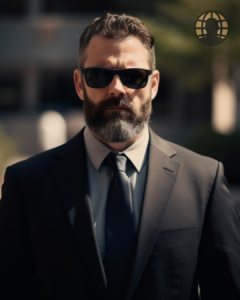
Sending out resumes without researching the recipient is like shooting in the dark. In today’s competitive job market, understanding the companies or individuals you’re applying to is crucial. Tailor your applications and demonstrate your knowledge of their needs and challenges. This proactive approach shows your dedication and can significantly increase your chances of securing an interview.
3. Where’s Your Tenacity?
Persistence is key in the EP field. A single well-executed job can open doors and pave the way for future opportunities. Emulate the tenacity of successful individuals who never gave up despite numerous rejections. Your resilience and determination to succeed, coupled with professionalism and the right attitude, will set you apart in this competitive industry.
4. No Network
Networking is paramount in the executive protection industry, where many opportunities arise through word-of-mouth and personal connections. Surprisingly, many EP professionals overlook the power of LinkedIn for networking and job searches. A well-crafted LinkedIn profile can serve as a dynamic resume, showcasing your skills, experiences, and professional interests to potential employers and peers. Engaging with the EP community on LinkedIn, sharing insights, and participating in discussions can significantly enhance your visibility and prospects in the industry.
5. Creativity in Your Protection Pursuits
Thinking outside the box is essential when traditional job-seeking methods don’t yield results. Explore unconventional avenues to demonstrate your skills and make connections. Whether through volunteering for high-profile events or offering your expertise in unique settings, distinguish yourself by how you approach potential clients and opportunities. Remember, your resume gets you the interview, but your performance and creativity in the interview get you the job

6. Reinvent Yourself
Adaptability is crucial, especially in challenging times. Expanding your skill set, embracing temporary roles, and being open to learning can lead to unexpected opportunities. Reflect on your career path and consider how you can reframe your experience and skills to meet the current demands of the EP market. Continuous self-improvement and willingness to step out of your comfort zone are vital for long-term success.
Conclusion: Embracing Change and Opportunity in Executive Protection
The landscape of executive protection is continually evolving, with new challenges and opportunities emerging in the digital age. Integrating traditional virtues of tenacity, networking, and skill enhancement with modern strategies like social media presence, especially on LinkedIn, is crucial for today’s EP professionals. By embracing change, continuing to learn, and leveraging every available tool, including the vast networking possibilities of LinkedIn, you can navigate the competitive job market more effectively. Remember, the journey to success in executive protection is both a marathon and a sprint, requiring persistence, creativity, and adaptability every step of the way.
Are you looking to propel your protection career to new heights? Discover a wealth of resources designed to guide you through the complexities of the EP industry.
Whether you want to enhance your skills, stay ahead of the latest trends, or find innovative solutions to security challenges, we’ve got you covered. Click on the links below to explore and unlock the potential for your professional growth today.
Harlan Austin
Executive Protection Books
Professional Services
The post 6 Reasons Why You’re Not Working appeared first on Bodyguard Careers.
Shortage of Female Bodyguards 29 Mar 2024, 5:15 pm
Female Bodyguards
In recent years, a shortage of female bodyguards among female celebrities has surged, highlighting a significant shift within the executive protection industry. Despite this increasing demand, the field remains predominantly male, accentuating the scarcity of female bodyguards available. This shortage can be attributed to enduring stereotypes and the historical perception that physical stature is paramount in protective services.
Contrary to the outdated belief that effectiveness in the role of a bodyguard is measured by physical strength alone, the essence of executive protection lies in preemptive strategy and the ability to avert confrontations. The required skill set extends beyond physical capabilities, including threat assessment, conflict resolution, and tactical planning. Given these requirements, there is no justifiable basis to doubt women’s competence in fulfilling these roles effectively.
The industry’s slow integration of women can also be traced back to its traditional recruitment pools, which have been heavily skewed towards sectors like law enforcement, military, and martial arts—historically male-dominated areas. However, as these fields begin to see greater gender diversity, the potential for women to excel in executive protection roles becomes increasingly apparent.
Female bodyguards offer a unique blend of skills that are highly valued in the realm of executive protection. Beyond the competencies shared with their male counterparts in self-defense, weapons handling, and tactical operations, women are often recognized for their exceptional listening skills, intuitive judgment, and adeptness in negotiation and conflict de-escalation.
Celebrities with female bodyguards
Many female celebrities prefer the less conspicuous presence of a female bodyguard, seeking an individual who blends seamlessly into their environment, thus minimizing the intrusion into their personal lives. This preference underscores the importance of an effective and discreet protective detail.
Despite the shortage of female bodyguards, a recognition of their value and the expanding opportunities within the sector, female bodyguards remain relatively rare. This scarcity, however, positions those in the field to command lucrative engagements, reflecting the specialized skills and unique advantages they bring to executive protection services.
As the executive protection industry evolves, it is imperative to continue challenging and dismantling the stereotypes that have historically hindered the inclusion of women. Encouraging a more diverse pool of candidates enriches the field with a broader range of skills and perspectives and better serves the varied needs of those requiring protection. The future of executive protection lies in recognizing and harnessing the unique strengths of all its professionals, irrespective of gender.
If you’re looking for a resource for more information, check out my podcast, The
Bodyguard Insider. It’s available on Apple Podcasts and Spotify. Through The Bodyguard Insider, you’ll gain access to insights, stories, and advice from industry experts, experienced bodyguards, and those who’ve navigated the path you’re on.
It’s a valuable tool for anyone serious about advancing their career in executive protection and becoming a proficient private bodyguard. Join us as we delve into the intricacies of the security world, offering you the knowledge and inspiration you need to succeed.
The post Shortage of Female Bodyguards appeared first on Bodyguard Careers.
How to Become a Private Bodyguard: An 11-Point Guide 23 Mar 2024, 4:16 pm

Private Bodyguard
In the early 2000s, I was downtown, sharing a moment with a good friend, when an encounter brought my past into the present. An individual recognized me from my days as a bodyguard for the Artist Prince.
Approaching with curiosity and determination, he expressed his desire to enter the game of executive protection. He was keen on becoming a private bodyguard for a celebrity. I shared a quick elevator pitch on achieving that dream, which sparked even more interest in his eyes.
As he walked away, my friend turned to me, puzzled, and asked, “What are you doing?” I was confused at first, “What do you mean?” I responded. He elaborated, “Giving him information on how to become a bodyguard.
Maybe you should consider writing or putting together a blog to disseminate this information to a larger group of people instead of one or two at a time.” At that moment, I didn’t even know what a blog was. But that conversation planted a seed that eventually led me to figure it out and share my knowledge and experiences with those aspiring to become private bodyguards.
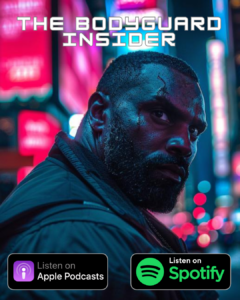 Entering the realm of executive protection and becoming a private bodyguard is a journey that requires more than just a desire to protect. Based on conversations with several executive protection company owners and my experiences, becoming a trusted private bodyguard involves a blend of formal training, real-world application, and an unwavering commitment to professionalism. Here’s an 11-point guide tailored to provide actionable steps for aspiring private bodyguards:
Entering the realm of executive protection and becoming a private bodyguard is a journey that requires more than just a desire to protect. Based on conversations with several executive protection company owners and my experiences, becoming a trusted private bodyguard involves a blend of formal training, real-world application, and an unwavering commitment to professionalism. Here’s an 11-point guide tailored to provide actionable steps for aspiring private bodyguards:
- Understand the Industry: Realize that becoming a private bodyguard goes beyond physical strength; it encompasses a deep understanding of security, vigilance, and the subtleties of executive protection.
- Value of Formal Training: While formal training is important, what sets you apart is demonstrating the ability to apply learned skills in real-world scenarios. Seek programs that offer practical exercises and real-life simulations.
- Start Somewhere Relevant: If direct entry into executive protection is not immediately available, consider positions that inch you closer to the industry. Roles in uniform security divisions or loss prevention can serve as valuable stepping stones.
- Embrace Varied Experiences: Diverse experiences, such as working in retail loss prevention or as an executive assistant, can provide unique insights into personal and corporate security nuances.
- Reputation is Key: Your reputation in the private security industry is paramount. It’s built on trust, reliability, and consistently demonstrating your ability to handle responsibilities, big or small.
- Be an Asset, Not a Liability: Strive to excel in any security role you find yourself in, whether that’s uniformed security, a tactical officer in labor disputes, or the coveted position of an executive protection agent.
- Commit to Continuous Improvement: The willingness to better yourself and showcase your competence is crucial. Always look for opportunities to add value to your team and to your clients.
- Do Your Homework: Before investing in training, research the field thoroughly. Understand the basic requirements, methodologies, and legal framework of the state or country you wish to operate in.
- Seek Out Quality Training and Mentoring: Identify reputable schools and mentors within the executive protection field. Opt for those that not only cover the basics but also offer insights into the practical aspects of the job.
- Networking is Crucial: Connect with professionals in the field through conferences, seminars, and online forums. The executive protection industry is tightly knit, and opportunities often arise through word of mouth and professional connections.
- Learn From Real-World Operators: Invest time reading books and resources written by experienced private bodyguards and executive protection professionals. These materials can offer invaluable insights and prepare you for the challenges of the job.
Becoming a private bodyguard involves a commitment to professionalism, a dedication to continuous learning, and the ability to adapt to the evolving landscape of executive protection. It’s a career that demands not only physical readiness but also a strategic mind capable of navigating complex security challenges. Whether you’re just starting out or looking to transition into executive protection, these steps can guide you toward a successful and fulfilling career as a private bodyguard.
If you’re looking for a resource for more information, check out my podcast, The
Bodyguard Insider. It’s available on Apple Podcasts and Spotify. Through The Bodyguard Insider, you’ll gain access to insights, stories, and advice from industry experts, experienced bodyguards, and those who’ve navigated the path you’re on.
It’s a valuable tool for anyone serious about advancing their career in executive protection and becoming a proficient private bodyguard. Join us as we delve into the intricacies of the security world, offering you the knowledge and inspiration you need to succeed.
The post How to Become a Private Bodyguard: An 11-Point Guide appeared first on Bodyguard Careers.
